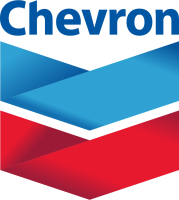
One of the world's largest oil and gas companies and the largest producer of natural gas for Israel.
Chevron is the largest producer of fossil gas for Israel and the largest multinational corporation with a significant stake in Israel’s energy sector. Between 2021 and December 2024, the company spent nearly $28.5 million on lobbying the U.S. government, including on energy issues related to Israel.
Chevron operates and partially owns the largest active Israeli gas fields, Tamar and Leviathan, and the smaller and undeveloped Dalit field, all of which are located in the Eastern Mediterranean Sea, west of Haifa. The gas from Tamar is processed in a rig that is located farther south, off the coast of Isdud/Ashdod. In 2023, the company made an estimated $1.5 billion in revenue from Tamar and Leviathan gas sales alone, mostly from exports to Egypt and Jordan.
Chevron also operates and partially owns the East Mediterranean Gas (EMG) Pipeline, which runs from Israel to Egypt off the coast of the Gaza Strip.
As the operator of these gas fields and the pipeline, Chevron is responsible for all operations of these projects, including planning, construction, production, and supply.
Chevron also partially owns the Caspian Pipeline Consortium in Russia, which supplies crude oil to Israel, as well as the main Kazakh companies that supply this oil.
As a major economic partner of the Israeli government, Chevron pays hundreds of millions of dollars in royalties and fees to the Israeli government each year. In 2023, Chevron paid over $820 million to the Israeli government, in addition to other regular corporate taxes.
Israel’s energy production relies on the supply of fossil gas. About 71% of the electricity produced in 2023 used fossil gas, and two-thirds of it was supplied by Chevron's Tamar gas field. Tamar holds the main supply contract to the state-owned Israel Electric Corporation through 2030.
Through these operations, Chevron fuels apartheid and war crimes. The Israel Electric Corporation (IEC) supplies electricity to all branches of the Israeli government and the vast majority of Israeli households. This means that all Israeli military bases, prisons, and police stations, as well as Israel’s illegal settlements and outposts in the occupied West Bank, rely on Chevron.
The supply of electricity across Israel and the occupied Palestinian territory is used as a tool of subjugation, collective punishment, annexation, and dispossession. In the occupied Palestinian territory, the Israel Electric Corporation took over the Palestinian power grid after Israel’s 1967 occupation, making the Palestinian population dependent on its services.
As part of Israel’s apartheid regime, some Palestinian communities inside Israel and across the occupied Palestinian territory are banned from connection to the grid; some are provided subpar services; some are charged differently than neighboring Jewish-Israeli towns; and many suffer punitive power cuts as a form of collective punishment. This is energy apartheid.
Specifically, Chevron has fueled and exploited the Israeli military occupation of Gaza. Since 2007, Israel has imposed an air, land, and naval blockade of Gaza. Israel tightened its blockade to enable Chevron’s operations off the coast of Gaza.
Chevron’s Tamar processing rig, as well as its pipelines, are located about 13.5 nautical miles offshore near al-Majdal Asqalan/Ashkelon, just outside the territorial waters of Gaza. The Israeli Navy secured this rig—and the nearby EMG pipeline—by restricting all Palestinian maritime activities in the area. Since 2009, this has tightened Israel’s naval blockade on the Gaza Strip to 3–6 nautical miles, with devastating impacts on Gaza’s economy and fishing industry.
The EMG pipeline, also operated and partially owned by Chevron, connects Israel and Egypt, passing west of the Gaza shoreline. Regardless of its exact location—kept secret for security reasons—this pipeline is not under Israeli jurisdiction, and any economic gain in this area without Palestinian agreement is illegal under international law.
Since 2007, Israel has repeatedly destroyed civilian energy infrastructure, including Gaza’s one power plant, making the Israel Electric Corporation an indispensable supplier, providing about 30–50% of Gaza’s electricity, paid for by the Palestinian Authority. Israel frequently reduced or shut off supply as a form of collective punishment, in violation of international law. After Oct. 7, 2023, electricity supply to Gaza was completely shut off.
Chevron entered the Israeli fossil gas market in 2020 with the acquisition of Noble Energy; it can choose to sell off this investment at any time.
Environmental Destruction and Violence Against Indigenous Communities Worldwide
Beyond its operations in Palestine/Israel, Chevron fuels environmental destruction and violence against Indigenous communities worldwide.
Chevron is responsible, for example, for oil spills in California, toxic wastewater dumps in Ecuador’s Amazon Rainforest, and large-scale pollution in the Niger Delta. The company has also been implicated in severe human rights abuses, including torture, forced labor/slavery, rape, murder, and genocide in countries around the world, including Azerbaijan, Angola, Argentina, Cameroon, Canada, Chad, China, East Timor, Ecuador, Ghana, Indonesia, Kazakhstan, Myanmar, Nigeria, Poland, Thailand, Venezuela, and the U.S.
For more information on Chevron’s destruction of our planet and communities, see here.
